
There are many types of gold ore found in nature, and different types of gold ore may require specific beneficiation techniques. Common gold ore beneficiation technologies in actual production mainly include: flotation, gravity separation, cyanide, heap leaching, bioleaching, etc. The specific mineral processing technology should be selected according to the characteristics and production requirements of the gold mine. Below you will find some common gold ore beneficiation techniques and the types of gold ore they are suitable for.
Gravity separation relies on density differences between gold particles and gangue minerals, using equipment such as shakers and centrifugal concentrators to separate gold from other minerals.
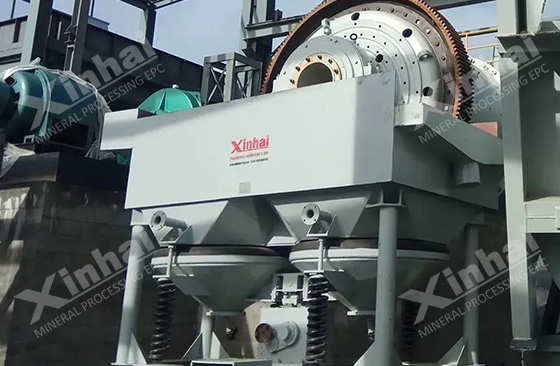
Gravity separation process of gold ore: First, the raw gold ore is broken into small particles, and the gold particles are dissociated from the gangue minerals. The crushed ore is then fed into gravity separation equipment, where high-density gold particles are precipitated and collected, while other lighter minerals are washed away. Gravity gold concentrates require further refining or other beneficiation processes to achieve the required purity and recover the maximum amount of gold. Gravity separation can be applied to placer gold, alluvial gold and some oxidized ores.
Flotation is a separation process that exploits differences in surface properties between gold minerals and other minerals. During the flotation process, flotation agents such as collectors and froth agents need to be added. These agents will selectively attach to gold particles and separate them.
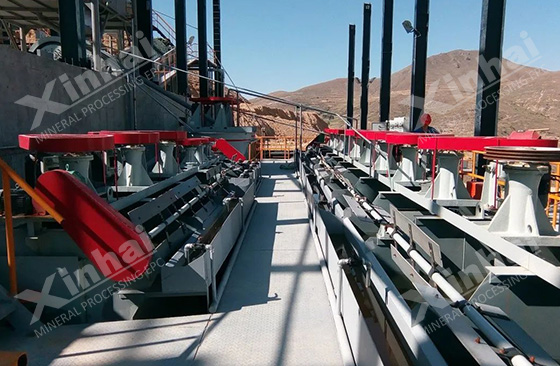
Gold ore flotation separation process: First, mix the crushed gold ore with water, and then add flotation agent and frothing agent to form a foam flotation liquid. The flotation agent will be adsorbed on the surface of the gold ore particles, making it hydrophilic, while the frother will form foam on the liquid surface. Next, air is introduced into the flotation machine, and the bubbles formed attach to the gold ore particles, separating them from the gangue minerals and floating to the liquid surface, collecting the gold ore foam, and further processing to extract gold. This process is suitable for sulfide gold ores and some refractory gold ores, and selective recovery of gold can be achieved by controlling flotation conditions.
The cyanide method mainly uses dilute cyanide solution to leach crushed ore. In this process, gold is dissolved in the solution, and the gold can be recovered from the solution through processes such as CIP or CIL.
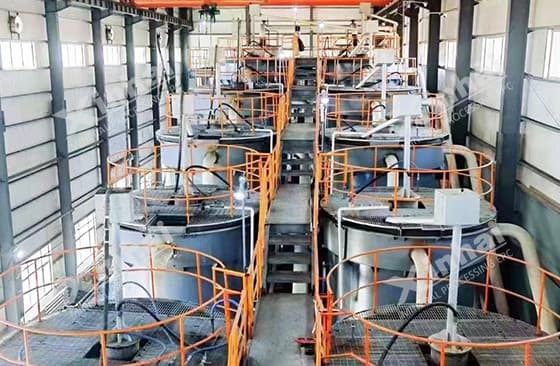
Gold ore cyanide leaching process: First, the crushed gold ore is mixed with dilute cyanide solution, this step is called leaching. The cyanide solution dissolves the gold through osmosis, separating it from other impurities. Next, the gold dissolved in cyanide is adsorbed to its surface through the action of an adsorbent (such as activated carbon) to form a gold-cyanide complex. The gold-containing adsorbent is then separated from the solution and the gold is recovered by heating or other methods. Cyanide leaching is a widely used method for extracting gold but requires careful management to ensure safety and environmental protection.
Bioleaching uses microorganisms to oxidize sulfide minerals in gold ores, making the gold easy to cyanide leaches. This method can be used with refractory ores that are resistant to conventional cyanidation methods.
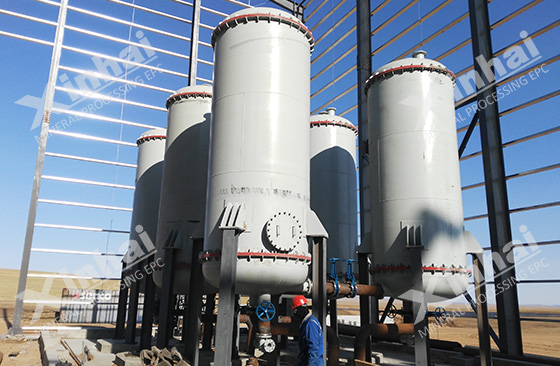
Gold ore bioleaching process: First, the crushed gold ore is mixed with water and Thiobacillus, and then the mixture is sent to the leaching tank. Thiobacilli release gold and other valuable metals by oxidizing sulfide minerals in ores. This process produces an acidic leachate that contains dissolved gold. Next, the leachate is separated and processed to recover the gold from it. Bioleaching is an environmentally friendly and efficient method particularly suitable for treating difficult-to-treat gold ores containing high sulfide content.
The compressed oxygen method is a high-temperature and high-pressure process that oxidizes the sulfide minerals in the ore so that gold and other valuable metals can be cyanide leached.
The pressurized oxygen oxidation process of gold ore: First, the crushed gold ore is sent to the high-temperature and high-pressure pressurized oxygen equipment. Under such conditions, the sulfide minerals in the ore are oxidized, and gold and other valuable metals are released to facilitate the subsequent cyanide leaching process. Oxygen is often used as the oxidant, while temperature and pressure are controlled to ensure the reaction is efficient. The oxidized slurry is then sent to a subsequent cyanide leaching process or other extraction and separation steps to recover the gold. Pressurized oxygen oxidation is an effective method for treating gold ores containing difficult-to-treat sulfides.
In heap leaching, ore is piled on a mat and sprayed with a cyanide solution, which penetrates the ore and dissolves the gold. This method is typically used in large, low-grade gold deposits and is a cost-effective way to extract gold.
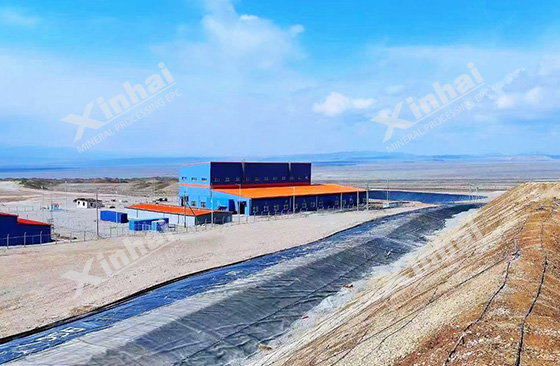
Gold ore heap leaching process: First, the crushed gold ore is piled on a polyethylene film mat. The diluted cyanide solution is then sprayed evenly onto the ore pile using a sprinkler system. The solution seeps through the ore pile, dissolving the gold particles and separating them from the gangue minerals. The solution filtered down is cyanide containing gold, which is collected at the bottom and then processed, usually by carbon adsorption or carbon leaching to recover gold.
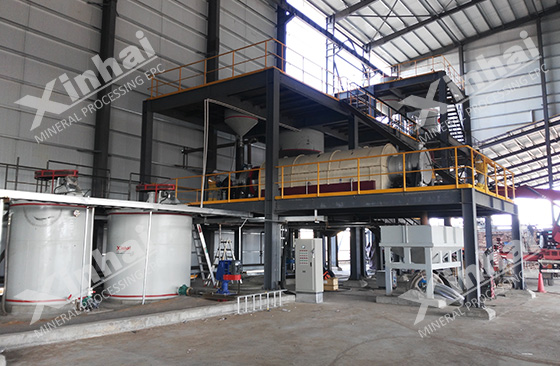
The above is the mineral processing technology and process flow of six kinds of gold mines. Different mineral processing technologies require different equipment, costs and management requirements. The selection of mineral processing technology should be based on the type of ore, its mineralogical characteristics, the relationship between gold and other minerals, and the purity requirements of the final product. Depending on the ore characteristics and production requirements, it is sometimes necessary to combine other beneficiation technologies to increase gold recovery. Therefore, gold mineral processing technology should not be chosen blindly to avoid resource waste and economic losses.
To find out more about our products and solutions, please fill out the form below and one of our experts will get back to you shortly.